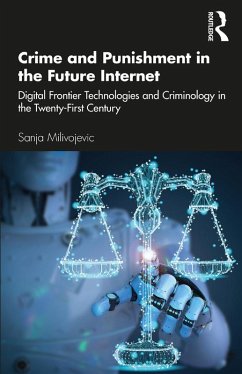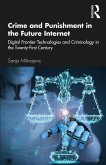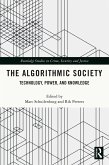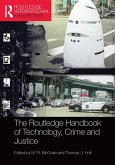Two key concerns lie at the heart of this volume. First, the book investigates the origins and development of emerging DFTs and their interactions with criminal behaviour, crime prevention, victimisation, and crime control. It also investigates the future advances and likely impact of such processes on a range of social actors: citizens, non-citizens, offenders, victims of crime, judiciary and law enforcement, media, NGOs. This book does not adopt technological determinism that suggests technology alone drives social development. Yet, while it is impossible to know where the emerging technologies are taking us, there is no doubt that DFTs will shape the way we engage with and experience criminal behaviour in the twenty-first century. As such, this book starts the conversation about a range of essential topics that this expansion brings to social sciences, and begins to decipher challenges we will be facing in the future.
An accessible and compelling read, this book will appeal to those engaged with criminology, sociology, politics, policymaking, and all those interested in the impact of DFTs on the criminal justice system.
Dieser Download kann aus rechtlichen Gründen nur mit Rechnungsadresse in A, B, BG, CY, CZ, D, DK, EW, E, FIN, F, GR, HR, H, IRL, I, LT, L, LR, M, NL, PL, P, R, S, SLO, SK ausgeliefert werden.









